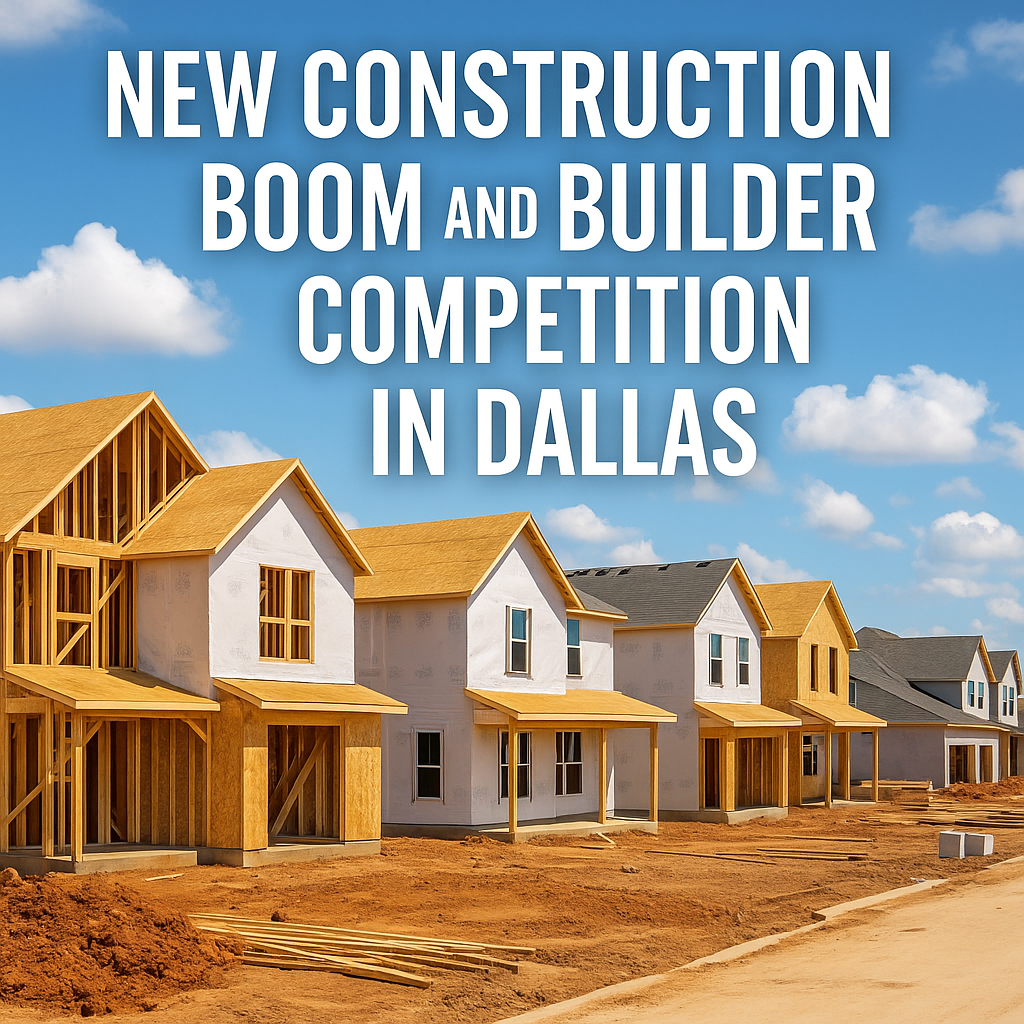The Dallas–Fort Worth metroplex continues to be one of the fastest-growing housing markets in the country. With strong job growth, steady migration, and expanding suburban development, new construction is everywhere: from Frisco and Prosper to Mansfield, McKinney, and Fort Worth’s western suburbs.
But this growth comes with competition. Builders across North Texas are racing to deliver new homes quickly while balancing higher costs and limited labor, and that combination can make independent phase inspections more important than ever for today’s buyers.
Why New Construction Is Booming in DFW
1. North Texas keeps attracting new residents.
Major employers in tech, healthcare, finance, and logistics continue to move operations to the DFW area. Thousands of new residents arrive each month and many prefer buying new homes over older resales that may need upgrades or repairs.
2. Suburban expansion is redefining DFW living.
Communities such as Frisco, Prosper, Melissa, Celina, and McKinney are adding entire neighborhoods seemingly overnight. South of Dallas, growth in Mansfield, Midlothian, and Waxahachie mirrors that trend, while Fort Worth’s suburbs — like Aledo and Haslet — are filling with new master-planned developments.
3. Builder incentives make new homes more appealing.
With resale inventory still limited, many buyers are turning to new builds for modern design, energy efficiency, and financial perks like interest-rate buydowns or paid closing costs. Builders are using these offers to stay competitive, and that competition is fierce.
Why Builder Competition Is Heating Up
DFW’s new construction market is a high-stakes balancing act. Builders face:
- Rising material costs from tariffs and supply chain delays.
- Ongoing labor shortages in framing, plumbing, electrical, and HVAC trades.
- Tighter timelines as builders compete to deliver inventory faster than their rivals.
To stay competitive, some builders adjust standard features or substitute materials — not necessarily to cut corners, but to keep homes priced attractively. However, when hundreds of homes are under construction simultaneously, even small oversights can slip through.
That’s why third-party phase inspections are no longer optional — they’re essential.
The Hidden Risks of Rushed Construction
Even the most reputable builders can face challenges maintaining consistency across dozens of active job sites. When deadlines are tight and subcontractor crews rotate quickly, minor details can go unnoticed.
Common issues our inspectors encounter in North Texas include:
- Misaligned framing or uneven joists that impact drywall and flooring later
- Foundation issues related to expansive clay soils
- Poor drainage grading or missing weep holes
- Undersized HVAC systems or disconnected ductwork
- Missing fire blocking or insulation gaps behind walls
These problems aren’t always intentional; they’re often a byproduct of a fast-paced building environment. A third-party inspector acts as your eyes and ears throughout the process, catching issues early and ensuring your investment is protected.
How Phase Inspections Protect Buyers
A new construction phase inspection ensures your home is built to code and quality standards at every major stage of construction:
- Pre-Pour Inspection – Before the foundation is poured, the inspector checks rebar spacing, post-tension cables, and foundation depth for compliance.
- Framing/Pre-Drywall Inspection – Once framing, wiring, and plumbing are in place, the inspector reviews workmanship and safety before the walls are sealed.
- Final Inspection – After completion and before closing, the inspector tests every major system — structural, mechanical, electrical, and plumbing — to confirm the home is ready for occupancy.
Each report gives buyers a clear, independent view of construction progress and quality before taking ownership.
Don’t Skip the Pre-Warranty-Expiration Inspection
Your builder’s warranty usually lasts one year. A Pre-Warranty-Expiration Inspection — typically around month 11 — helps you identify any issues that have developed during that first year of settlement and use.
In North Texas, this often includes:
- Foundation movement caused by expansive soil
- HVAC performance issues during hot summers
- Drainage or grading concerns after heavy rain
- Small leaks or settling cracks that reveal larger structural shifts
Finding these before the warranty expires ensures the builder, not the homeowner, is responsible for repairs.
What’s Driving DFW Builder Competition in 2025
According to recent market data, the DFW region’s inventory is improving thanks to new developments — but affordability challenges remain.
- Suburbs like Frisco, McKinney, and Prosper are still leading the charge in growth and demand.
- Rockwall County may see moderate price corrections, prompting builders to accelerate deliveries and incentives to move inventory.
- Strong job growth continues to attract buyers, keeping pressure on construction schedules.
With so many homes going up at once, having a professional inspector who understands DFW’s unique soil, climate, and construction patterns can make a world of difference.
Protect Your New Home Investment
Whether you’re building in Collin County, Denton County, Dallas County, or Tarrant County, a Semper Fi phase inspection helps ensure your home is built right — not just fast.
Semper Fi Home Inspections serves the entire DFW Metroplex, including Frisco, McKinney, Allen, Plano, Fort Worth, Arlington, Mansfield, and surrounding communities
For a professional home or commercial inspection in the Dallas/Fort Worth Metroplex or Greater Houston Metro Area that will provide you peace of mind, schedule your inspection now
Call
682-351-2267
or book online



